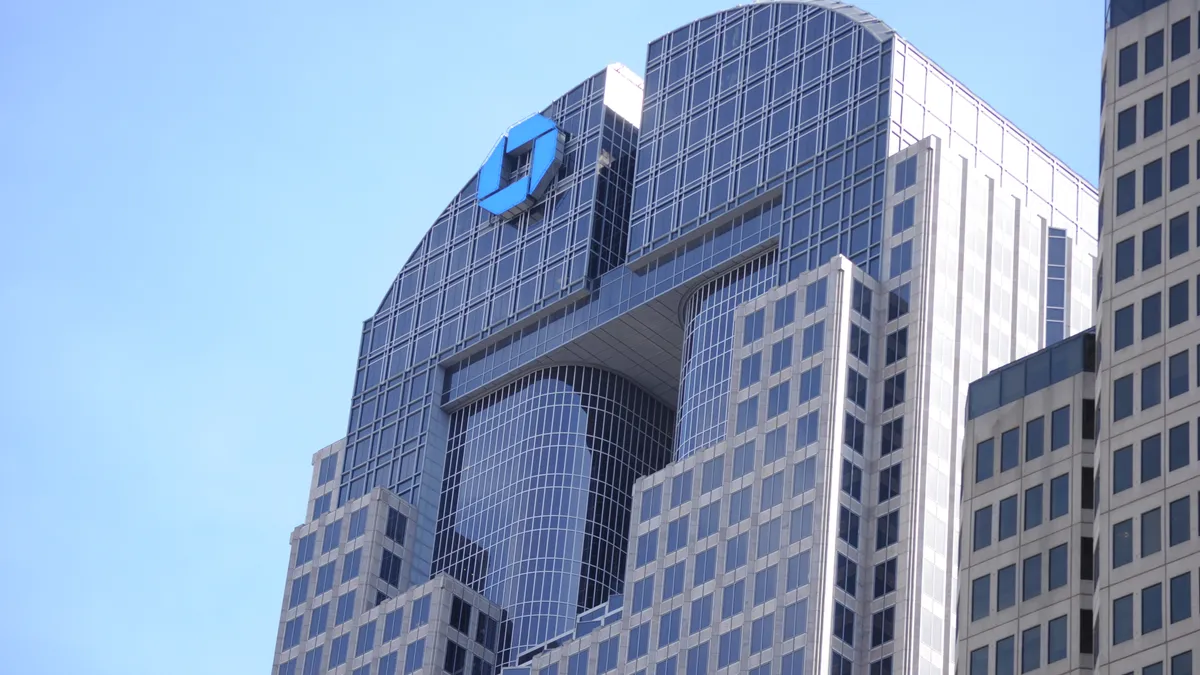UPDATE: April 1, 2020: JPMorgan Chase is making diversity training mandatory for all employees and will pay more attention to employee complaints, the bank’s acting co-chief executive officers wrote in a memo Tuesday to employees, according to The New York Times.
The nation's largest bank will also expand the recruiting team that hires people of color, make a greater effort to hire vendors run by minorities and work harder to provide customers with access to its full range of products, said Gordon Smith and Daniel Pinto, who led JPMorgan Chase while CEO Jamie Dimon recovered from heart surgery. Dimon returned to work remotely this week.
The bullet point on access appeared to be a direct reference to an instance when a former NFL player, who is black, claimed he was steered away from the bank’s private client program because of his race. The bank faced blowback after The New York Times reported the incident in December.
“We’ve identified a number of areas that, with enhanced, scaled or new programming or processes, would serve to improve our culture in important ways,” Smith and Pinto wrote Tuesday.
Dive Brief:
- A class-action lawsuit filed Tuesday claims JPMorgan Chase has discriminated against its black personal bankers by assigning them to lower-performing or lower-income branches.
- The bank’s practice of "open race matching and racial steering" puts black bankers in line for lower pay, fewer opportunities to advance and more safety issues than their white counterparts, plaintiff Angela Dunn, who is black and worked as a personal banker for the company from 2011 to 2019, alleged in the complaint, filed in the U.S. District Court for the Eastern District of Louisiana.
- Dunn is seeking back pay, front pay, past benefits, compensatory and punitive damages for herself and black personal bankers nationwide who have been subject to the bank’s allegedly discriminatory policies over the past four years. She wants a judge to order the bank to be monitored for compliance with anti-bias laws, to end the policies in question, and to mandate diversity training for employees.
Dive Insight:
Racial discrimination allegations are not new for the nation’s largest bank. JPMorgan Chase in 2018 paid $24 million to settle a case with similar claims to Dunn’s — namely, that the bank assigned white financial advisers to more affluent branches and limited opportunities for black advisers.
The bank also took heat in December after The New York Times published a story in which a former NFL player, who is black, claims he was steered away from the bank’s private client program because of his race.
The private client program, reserved for customers holding more than $250,000 with the bank, featured prominently in Dunn’s suit. Dunn said the program is only offered at certain locations — usually more affluent ones "[disproportionately] absent from predominantly African American communities to which African American Personal Bankers are steered." That excludes black bankers from access to higher-net-worth clients, limiting black bankers' income potential, Dunn claims.
Dunn said she was repeatedly denied promotion to manager positions — at one point being told another employee, who is white, was being groomed for the position. Dunn also said her supervisor sent her text messages with racial overtones. Chase branches in the neighborhood of Dunn’s location were robbed at least three times since she was hired in June 2011, she said.
JPMorgan had no comment on the suit, Bloomberg Law reported.














